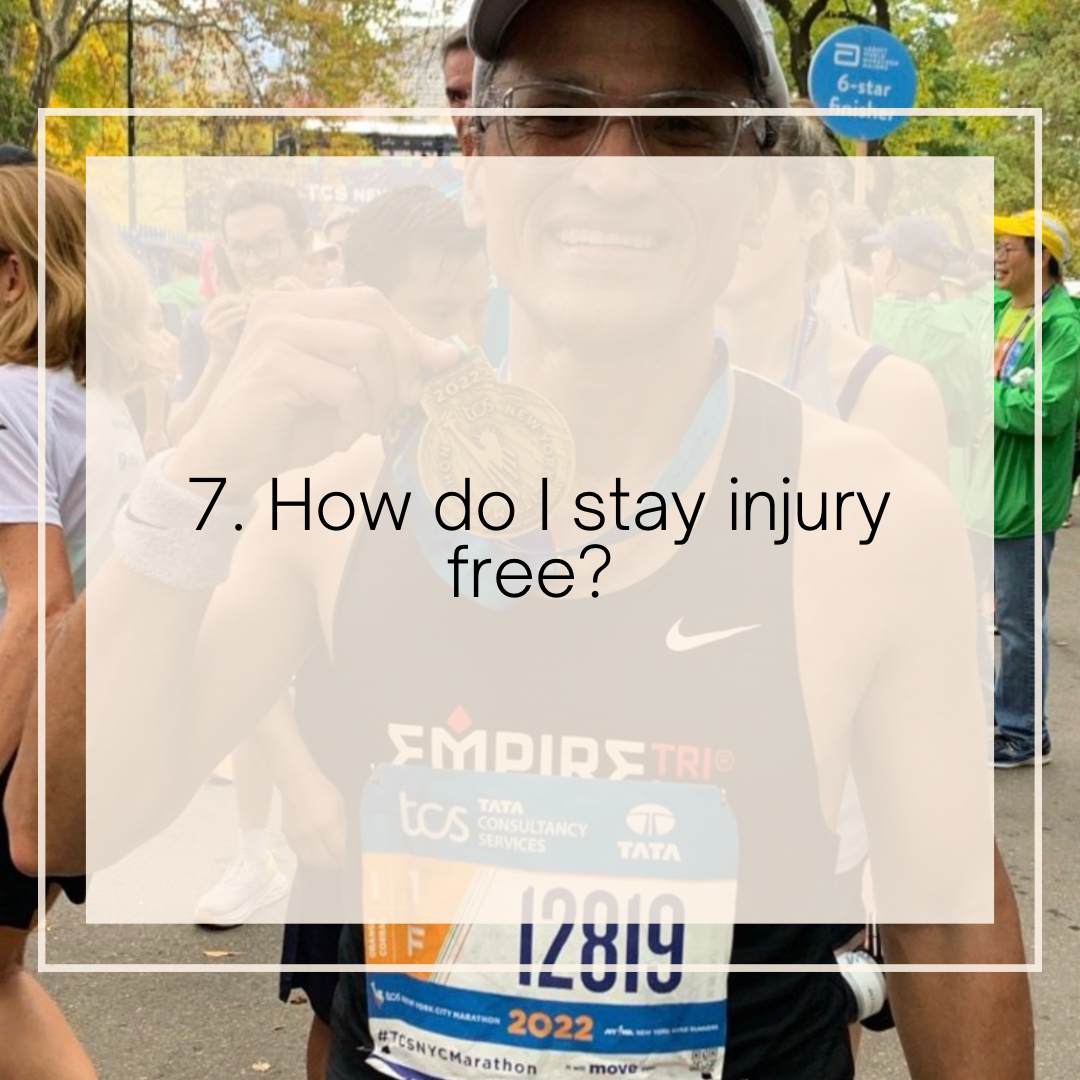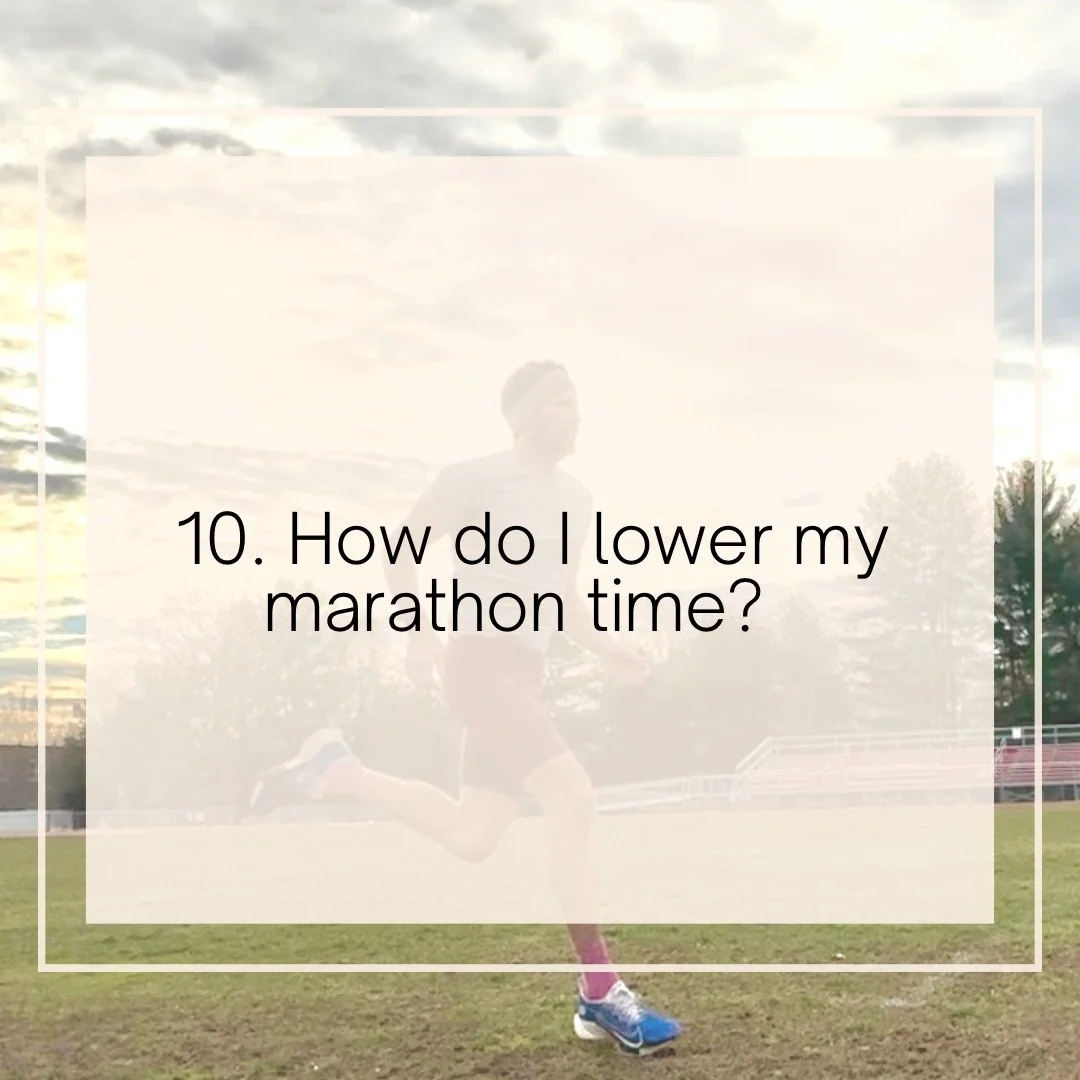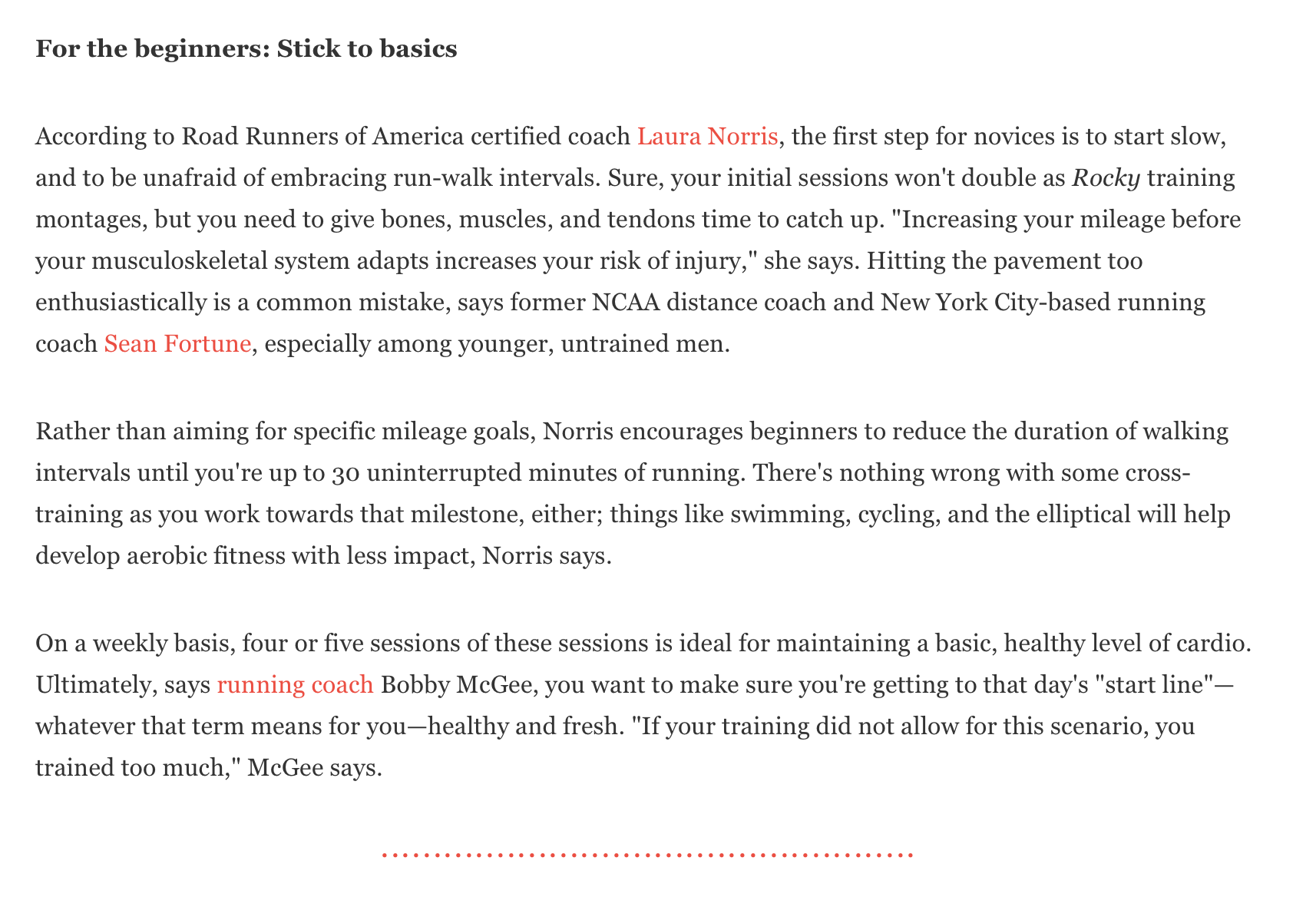A: Treating the recovery portion of your training as equally important as the active portion will give you the best odds at staying injury free. Think of it as a 50:50 split. That means easy days are easy. You invest in recovery gear: ice packs, roam roller, yoga stretch strap, compression boots, massages, etc. AND you use them liberally. You follow best practices whenever possible like the 10% rule - only increasing weekly mileage by 10% each week with the fourth week being a pullback week before starting another 3 week 10% progression. Keeping track of the mileage in your running shoes and replacing every 250-350 miles. Keeping your Long Runs to 20-30% of your weekly mileage, and don’t ignore little niggles, aches, and pains - treat them immediately.
For the next 10 days I’ll list the Top 10 Running Questions & Answers I get asked most frequently.
A. Depends on the individual but here are some of the things I look for: are you running enough? Are you doing speed work? Are you running long enough? Are you running too much? Are running too fast on easy days. Are you taking rest days? Are you getting enough sleep? Are you eating right? Are you cross training? Are you doing strength training, if so, how much? Are you racing shorter distances? Have you ever had bloodwork done? There’s a ton of questions that need to be unlocked to improve your marathon time, taking a good hard look at your global running regimen will likely find the answer.
There's plenty of tips on what to do before and during the NYC Marathon, but you rarely hear about what do to after. Here's my advice for before, during, and AFTER, the big day, written for the Joyful Approach blog.









